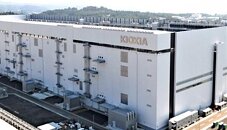
Transcend Announces MTE730P: Its First Industrial-Grade PCIe M.2 22110 SSD
Transcend Information Inc. (Transcend), a global leader in industrial memory storage, is proud to announce its first industrial-grade PCIe M.2 22110 SSD, the MTE730P. This SSD features Power Loss Protection (PLP) technology, ensuring robust data integrity even in the most demanding environments. With PCIe Gen 4 performance and capacities of up to 4 TB, the MTE730P meets the needs of high-end industrial automation, blade servers, data centers, and other modern storage applications.
Power Loss Protection: Create Higher Data Integrity
The MTE730P's Power Loss Protection (PLP) technology is a critical feature for applications such as automated manufacturing, medical systems, transportation systems, and financial transaction. It ensures that the built-in tantalum capacitors provide power to the controller and DRAM cache during power fluctuations or outages, guaranteeing maximum data integrity and security.
Power Loss Protection: Create Higher Data Integrity
The MTE730P's Power Loss Protection (PLP) technology is a critical feature for applications such as automated manufacturing, medical systems, transportation systems, and financial transaction. It ensures that the built-in tantalum capacitors provide power to the controller and DRAM cache during power fluctuations or outages, guaranteeing maximum data integrity and security.



































